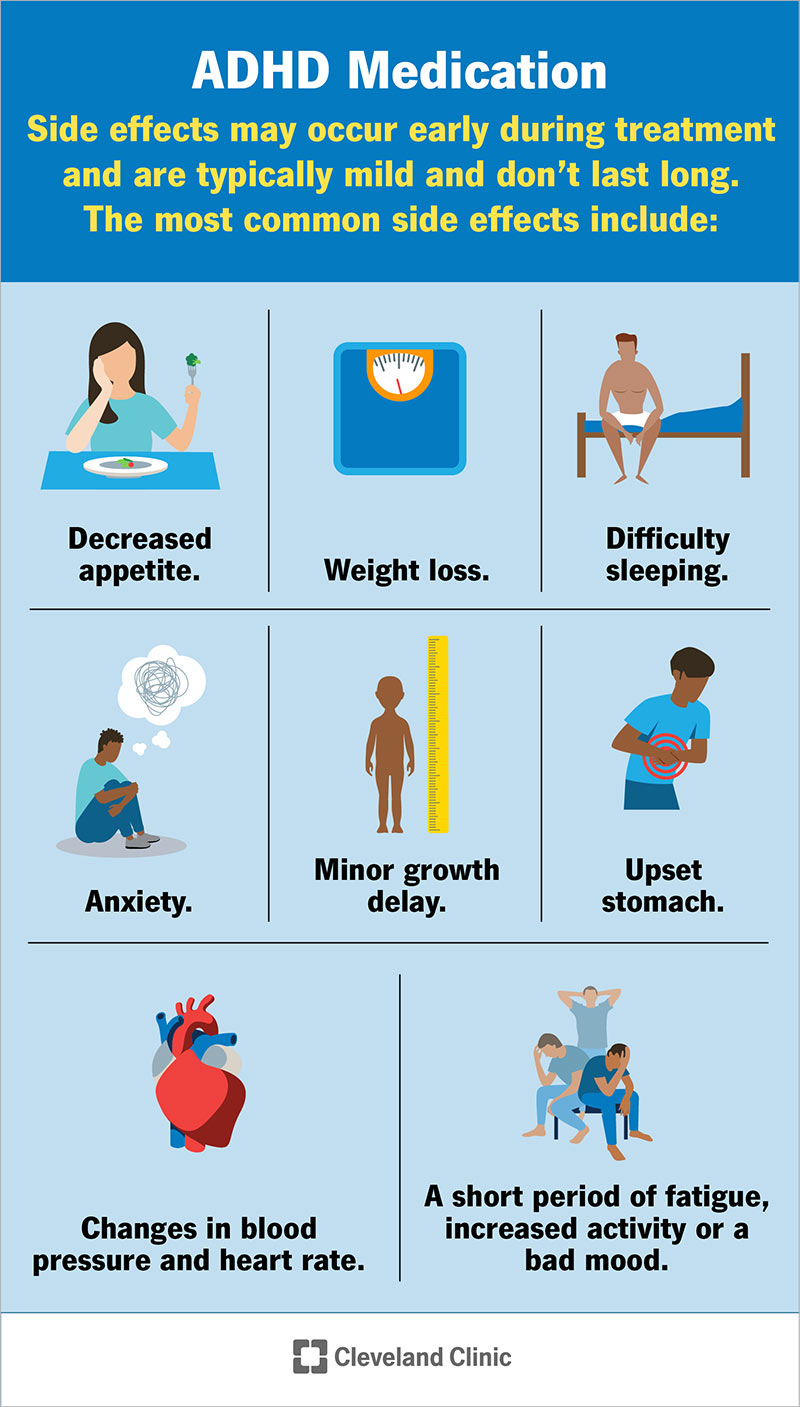Exploring Reliable ADHD Therapy Options for All Ages
The complexities of Attention deficit disorder (ADHD) existing special challenges across different age, necessitating a comprehensive exploration of effective therapy choices. A mix of behavior modifications, pharmacological treatments, and way of life modifications has revealed promise in addressing the diverse requirements of individuals with ADHD. The effectiveness of these strategies can differ considerably based on individual circumstances, increasing important inquiries about customized methods. As we examine the spectrum of therapy methods available, it ends up being necessary to think about not just their prompt impacts but likewise their long-lasting ramifications for individuals and households.
Recognizing ADHD and Its Influence
Attention-Deficit/Hyperactivity Disorder (ADHD) is a neurodevelopmental condition characterized by persistent patterns of inattention, hyperactivity, and impulsivity that can dramatically influence numerous aspects of an individual's life. It normally manifests in childhood years, although signs can persist into the adult years. The core signs of ADHD can interrupt instructional performance, impede social interactions, and make complex job-related ventures.
Individuals with ADHD commonly battle with maintaining emphasis on tasks, organizing tasks, and complying with with on directions, which can bring about scholastic underachievement (Depression Treatment). In social contexts, impulsivity may result in troubles in developing and sustaining connections, as individuals might interrupt discussions or make hasty decisions without thinking about repercussions
Furthermore, ADHD can co-occur with various other psychological health conditions, such as anxiousness and anxiety, even more complicating medical diagnosis and therapy. The irregularity in symptom discussion indicates that ADHD can affect individuals differently, necessitating an individualized method to monitoring. Recognizing ADHD's multifaceted impact is important for establishing reliable methods that sustain people in navigating daily difficulties and attaining their potential. Comprehensive recognition of ADHD's nature and ramifications prepares for discovering appropriate treatment choices tailored to each person's demands.
Behavioral Therapies for ADHD
Countless behavior modifications have been created to effectively address the difficulties connected with ADHD, concentrating on changing specific behaviors and cultivating crucial skills. Amongst the most acknowledged approaches are cognitive-behavioral therapy (CBT), parent training, and social abilities training.
CBT assists people recognize and change adverse idea patterns and habits, advertising a more favorable outlook and enhanced self-regulation. This therapy frequently includes functional methods for taking care of impulsivity and enhancing organization. Parent training programs encourage caretakers by furnishing them with strategies to reinforce positive behaviors and established regular limits, which can be especially advantageous for children with ADHD.
Social abilities training is one more vital part, mentor individuals with ADHD exactly how to interact effectively with peers - Depression Treatment. This method often entails role-playing and responses to boost communication, cooperation, and problem resolution skills
Including these behavior modifications into an extensive therapy strategy can substantially improve operating and lifestyle for individuals with ADHD. Eventually, the performance of these treatments depends upon customized techniques that take into consideration the distinct requirements of everyone, therefore cultivating strength and versatility in day-to-day live.
Medicine Options Available
For numerous individuals with ADHD, medication can play a substantial duty in handling signs and enhancing total performance. Both main categories of drugs suggested for ADHD are energizers and non-stimulants.
Energizers, such as methylphenidate and amphetamine-based medications, are the most frequently used therapies. These medications function by raising the degrees of neurotransmitters, specifically dopamine and norepinephrine, in the mind, which aids boost focus and decrease impulsivity and attention deficit disorder. They frequently yield fast outcomes, making them a recommended alternative for many people.

It is vital for doctor to conduct a comprehensive assessment to figure out one of the most suitable drug based upon individual needs, clinical history, and possible side impacts. Regular follow-up and monitoring are likewise critical to make sure the effectiveness of the chosen therapy and to make any needed adjustments.
Lifestyle Adjustments to Take Into Consideration
Handling ADHD successfully expands beyond drug, as way of living modifications can dramatically improve overall well-being and signs and symptom control. Incorporating organized regimens is important; regular routines help individuals with ADHD manage their time effectively and reduce feelings of bewilder.
Normal exercise is one more crucial part. Exercise not only assists to improve concentration yet likewise enhances state of mind and minimizes stress degrees. Activities such as yoga exercise or group sporting activities can be particularly beneficial, advertising both physical health and fitness and social interaction.
Nutrition additionally plays a critical role. Depression Treatment. A well balanced diet abundant in omega-3 fatty acids, entire grains, and lean proteins can add to improved emphasis and cognitive function. Limiting sugar and processed foods is suggested, as these can worsen hyperactivity and impulsivity
Rest hygiene is vital for taking care of ADHD signs and read this symptoms. Developing a regular rest routine and creating a restful environment can boost sleep quality, leading to better interest and emotional law.
Different and All Natural Strategies
Alternative and alternative approaches to ADHD therapy provide a diverse variety of choices that match standard methods. These approaches frequently focus on way of living alterations, dietary interventions, and restorative practices that aim to enhance overall wellness while addressing ADHD signs.

Mindfulness and behavioral therapies are also getting grip as holistic treatments. Practices such as yoga exercise, reflection, and cognitive-behavioral therapy can cultivate self-regulation and boost focus. These techniques sustain psychological durability, which is particularly helpful for individuals with ADHD.
Herbal supplements, such as ginkgo biloba and ginseng, are often explored; nonetheless, it is essential to consult health care experts prior to incorporating these into treatment plans. While alternative and holistic techniques can offer beneficial support, they should ideally be made use of along with evidence-based treatments to attain optimum results for managing ADHD across every ages.
Conclusion
In recap, efficient ADHD therapy requires a thorough technique that consists of behavioral treatments, medicine, way of living alterations, and alternative methods. This complex approach highlights the significance of customized care in addressing the diverse demands of people with ADHD throughout all age groups.